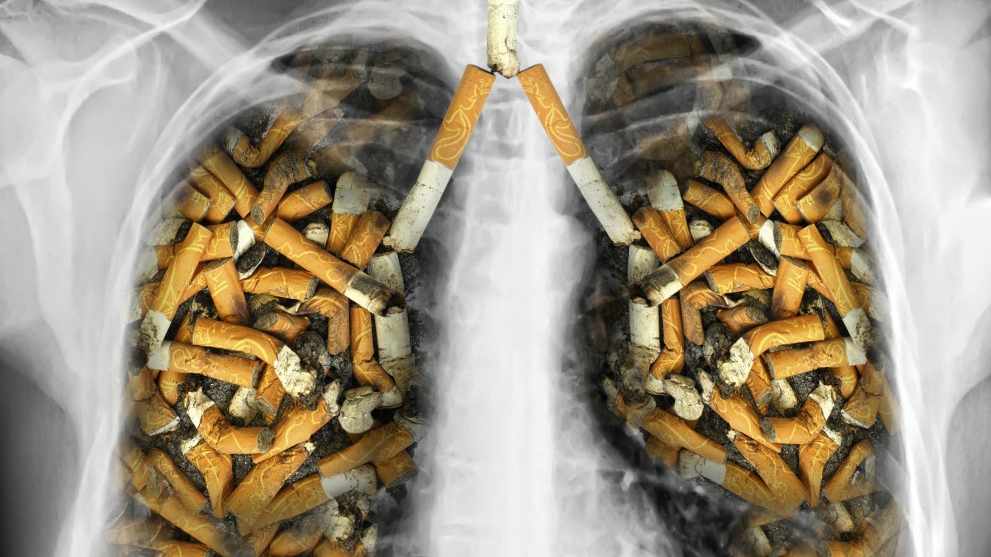November is Lung Cancer Awareness Month. This month is about raising awareness and improving efforts on lung cancer. Lung cancer survivors, caregivers, and families of individuals with lung cancer are encouraged to share their stories to help raise awareness.
What is Lung Cancer?
Lung cancer is the leading cause of cancer deaths, accounting for 27% of all cancer deaths. Lungs are an important part of the respiratory system. They help us breathe by taking in oxygen when we inhale and releasing carbon dioxide when we exhale.
Lung cancer begins in the cells of the lungs as a cancerous (malignant) tumour that can grow and destroy nearby tissue. Non-cancerous tumours may also develop in the lungs; these tumours are called hamartoma or papilloma tumours.
A cancerous tumour can spread cancer cells to other parts of the body. Metastatic lung cancer is when lung cancer originates from one place in the body and spreads to the lungs. Cancer that originates in the lungs is called primary lung cancer.
There are 2 types of primary lung cancer:
- Non-small Cell Lung Cancer (NSCLC): Begins in the glandular tissue on the outer part of the lungs
- Small Cell Lung Cancer (SCLC): Begins in the cells that line the bronchi in the centre of the lungs.
Smoking and Lung Cancer
Smoking is the number on risk factor for lung cancer. Tobacco products such as cigarettes, cigars, or pipes contain toxic chemicals that can damage the lungs. Over time, these poisonous chemicals can build up in the lungs, which can cause cancerous tumours to develop. Second-hand smoke is also a risk factor for lung cancer. Lung cancer does occur in individuals who have never smoked.
Learn more about the latest lung cancer research below:
1. Can following the Mediterranean diet reduce your risk of lung cancer?
An individual’s diet also plays a role in the development of lung cancer. The Mediterranean diet involves eating primarily plant-based foods such as vegetables, fruits, whole grains, legumes, and nuts. This diet also includes fish, olive oil and canola oil, herbs and spices, and a moderate amount of red wine. A study published in the British Journal of Nutrition investigated the association between a Mediterranean diet and the risk of lung cancer. Find out if a Mediterranean diet can reduce your risk of lung cancer here.
2. Clinical trial finds that pembrolizumab with chemotherapy improves lung cancer survival
Non-small-cell lung cancer is the most common type of lung cancer. This type of lung cancer accounts for 85% of all lung cancers and it mainly occurs in current or former smokers. A study in The New England Journal of Medicine evaluated the use of pemprolizumab during chemotherapy for lung cancer. Pemprolizumab is (a humanized antibody used in cancer immunotherapy). Read more to find out the efficacy and safety of using pemprolizumab with chemotherapy here.
3. Does body mass index predict your risk of developing lung cancer?
Body mass index (BMI) is the measure of body fat based on the weight and height of an individual. A high BMI is a measure of as obesity, and obesity is a risk factor for many types of cancer, including breast cancer. A study published in BMC Cancer determined the association between BMI and lung cancer. Read more to find out if obesity is a risk factor for lung cancer here.


No comments:
Post a Comment